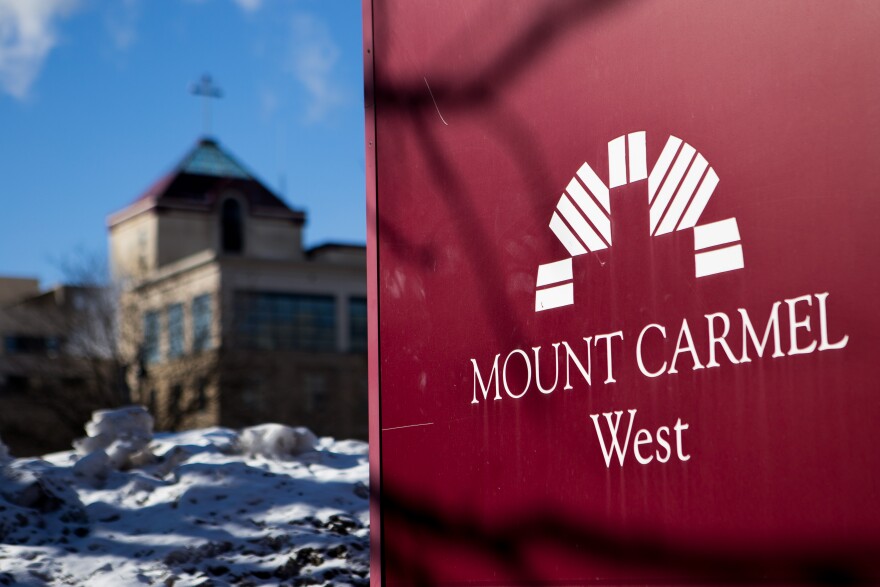Mount Carmel Health System says the federal Centers for Medicare and Medicaid cleared its pharmaceutical services of deficiencies but identified further problems with the hospital's "physical environment."
CMS told Mount Carmel West and St. Ann hospitals in February that their services were out of compliance with the conditions of Medicare participation. The agency authorized the Ohio Department of Health to conduct a full review of both hospitals.
On March 8, CMS and the health department visited Mount Carmel West to complete a survey of the hospital. A Mount Carmel spokeswoman says pharmaceutical services were then found to be in full compliance.
However, CMS also identified problems with Mount Carmel West's physical environment, such as issues with the facility, fire and building safety.
“We immediately began correcting items identified by CMS surveyors while they were still on site, and will submit a formal plan that addresses every finding,” reads a statement from Mount Carmel. “As of today, all items have been corrected or are in the process of being corrected.”
Timeline: The Mount Carmel Scandal So Far
CMS visited Mount Carmel St. Ann’s on March 15, but has yet to send a review of their findings to Mount Carmel.
“There is nothing more important to Mount Carmel than the safety of our patients and their trust in us,” the statement continues. “We continue to learn from these events, and we are confident that we have processes in place to ensure the safety of our patients and their families.”
Pharmacy Problems
Following the January 2019 firing of doctor William Husel for “excessive” painkiller dosing, CMS placed the hospital in “immediate jeopardy” of losing federal funding. Both Mount Carmel West and St. Ann's submitted corrective action plans to address issues identified in the pharmacy process.
A report from the Ohio Department of Health in February found policy deficiencies and failed safeguards around painkiller dosing and medication dispensing. Investigators found Mount Carmel “failed to prevent patients from receiving an overdose” from painkillers like fentanyl, and that employees could override the approval process of an automated medication dispensing system.
Mount Carmel’s corrective plan included limiting the availability of opioids in the dispensing system, reducing the number of medications available through system overrides, and requiring reviews of high-risk medication overrides.
Husel, an ICU doctor and anesthesiologist, worked at Mount Carmel from 2013-2018. He's accused of giving "excessive" doses of painkillers to at least 35 patients, all of whom died after receiving the medication. After Husel’s firing, the Ohio Medical Board suspended his medical license and scheduled a hearing to determine whether it would permanently revoke his license or take other disciplinary actions.
An internal review at Cleveland Clinic, where Husel worked as a supervised resident from 2008-2013, found no concerns with Husel's prescribing practices. Clinic spokeswoman Eileen Sheil confirms no complaints were filed against Husel while he worked there.
Since beginning an internal investigation, Mount Carmel has placed 30 employees on administrative leave, including all members of its clinical leadership. The hospital also reported 48 employees, including 18 who no longer work at the hospital, to the state nursing and pharmacy boards.
At least 26 families have filed wrongful death lawsuits against the doctor and hospital. Husel has denied negligently or intentionally causing patients' deaths.
If you have information to share about the Mount Carmel investigation, please contact WOSU at paige.pfleger@wosu.org.





